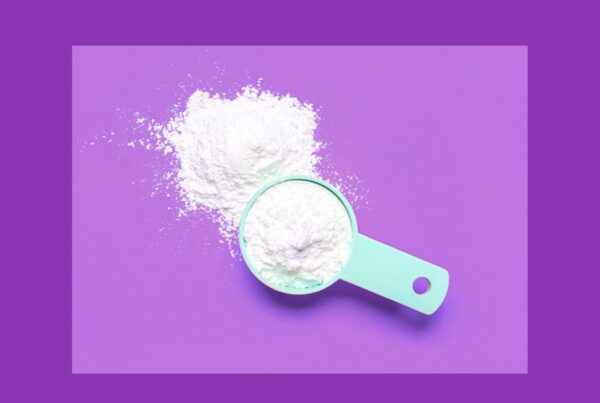Fezolinetant: A new non-hormonal option for hot flushes
Menopause hormone therapy (MHT) is the most effective treatment for vasomotor symptoms (VMS) – hot flushes an night sweats – but it’s not suitable for everyone. Some women face health risks with MHT, while others prefer non-hormonal options. Fezolinetant (trade name Veoza) is a new drug offering a non-hormonal approach to managing VMS.
Fezolinetant is a neurokinin-3 (NK3) receptor antagonists. It is taken as a 45mg tablet on a daily basis.
During menopause, declining oestrogen levels (and perhaps even fluctuating oestrogen levels) make the brain’s temperature regulation system more sensitive, leading to attempts to cool and warm experienced as VMS. Fezolinetant blocks the action of neurokinin B (NKB), a brain chemical within the thermoregulatory centre of the hypothalamus in the brain implicated in VMS.
Clinical trials have shown promising results for fezolinetant. A 2023 study published in The Lancet revealed that women taking fezolinetant experienced nearly a 60% reduction in moderate to severe hot flushes within the first 12 weeks, compared to a 30% reduction in the placebo group. Relief was observed within 1 week.
Fezolinetant is generally well-tolerated, though some side effects were noted in clinical trials, including headache, fatigue, abdominal discomfort and liver enzyme elevations (which normalised when stopped).
Long-term safety data is still being collected and there are no published outcomes in women who have had breast cancer and whilst there is no likely impact on hormone-sensitive cancer, clinical data in this group of women is awaited.
Fezolinetant represents simply another option for women experiencing the impact of VMS during menopause. It won’t help other symptoms but is a useful tool for women unable to use hormone-based solutions.
Note on VMS, cognition and heart disease
Emerging research suggests a link between frequent hot flushes during menopause and an increased risk of both cognitive decline and cardiovascular disease. The connection between VMS, cognitive decline, and cardiovascular health may be rooted in common biological pathways. Neurovascular dysregulation, inflammation, and oxidative stress have all been proposed as potential mechanisms linking vasomotor symptoms to these broader health issues.
It is important to understand correlation is not causation and that treating VMS (either with hormones or non-hormonal treatments) may not impact cognition and heart disease outcomes. Back to the guidelines – the best current management option for VMS is MHT in women where it is safe to use, and there are additional options when it is not.
The risk of developing these chronic conditions is also reduced by readily available strategies that have broad benefits – ensuring metabolic health, regular exercise, prioritising sleep, managing high lipids and blood pressure.






